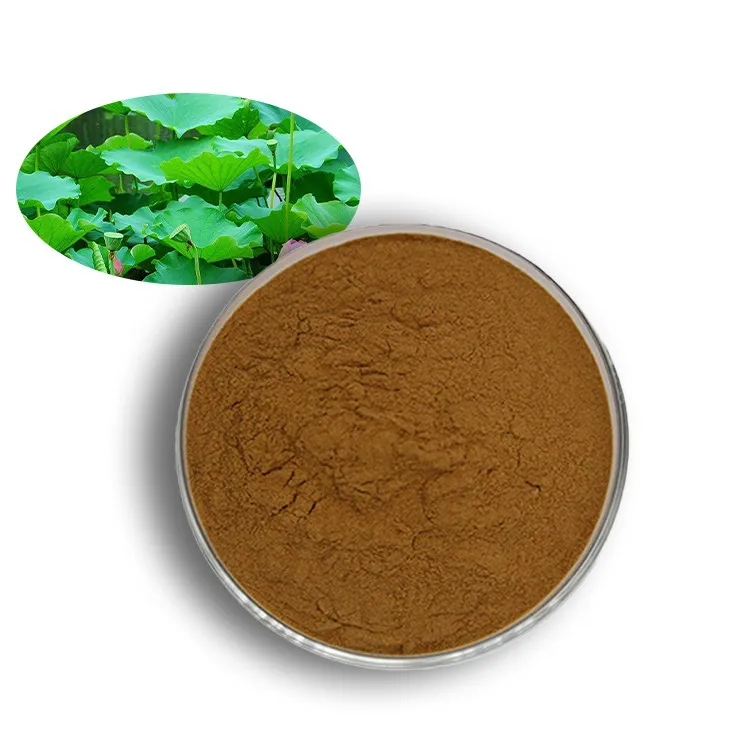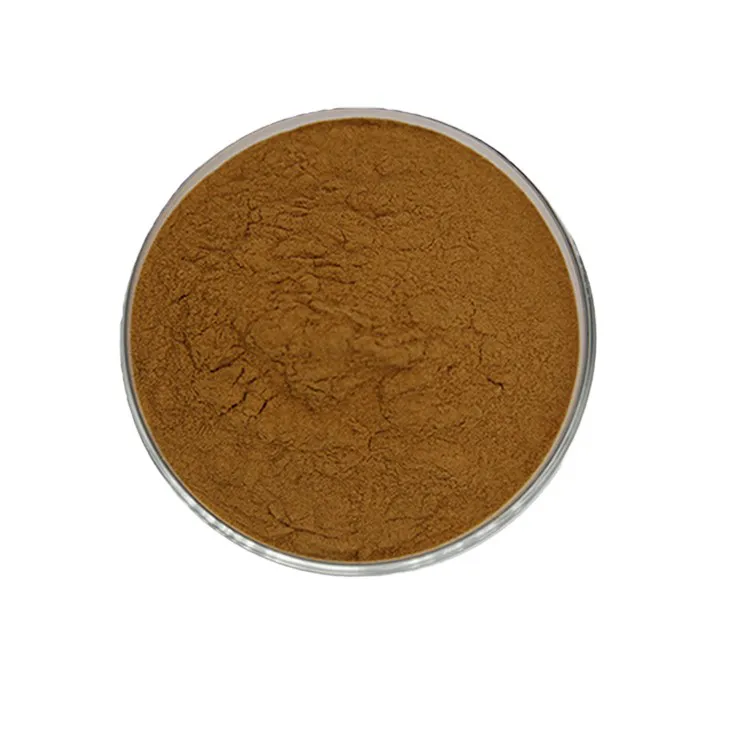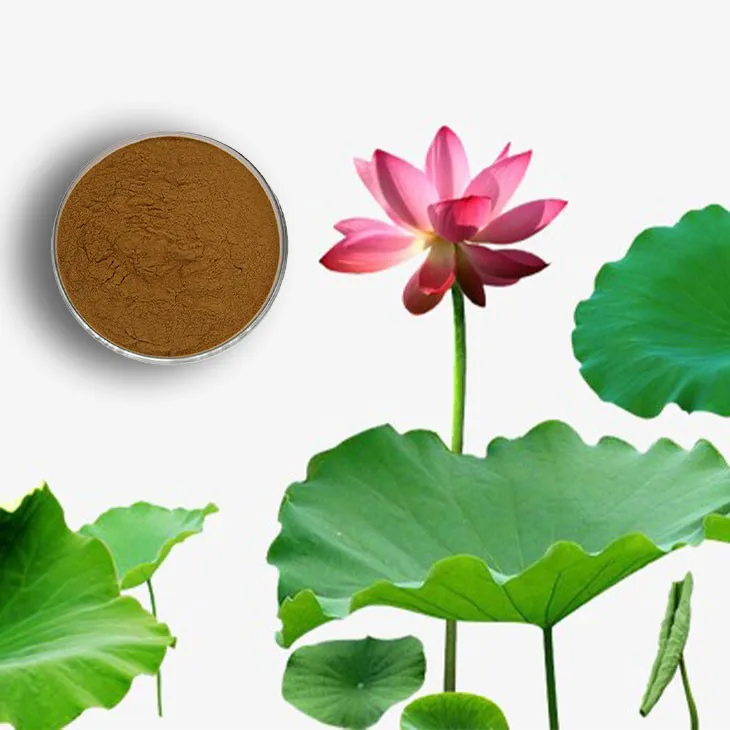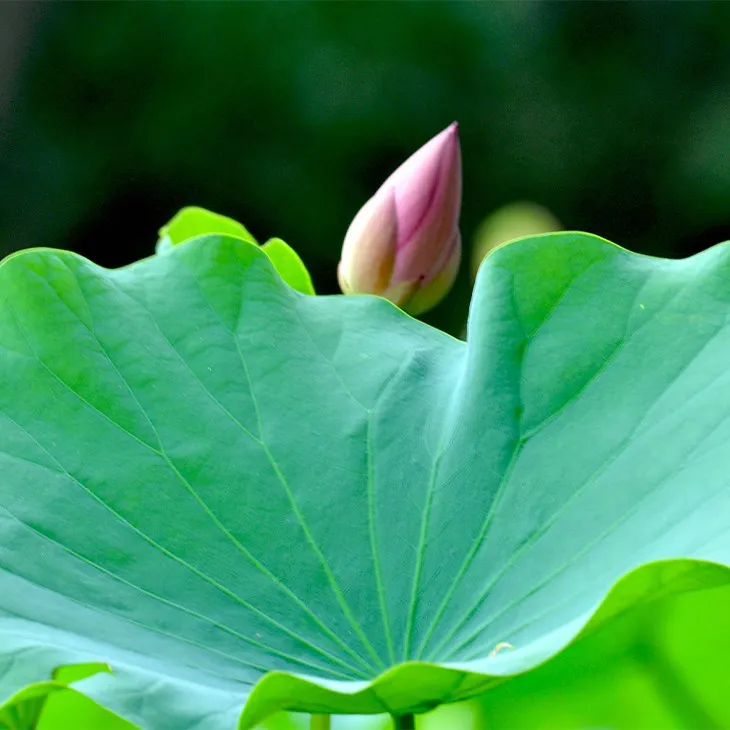- 0086-571-85302990
- sales@greenskybio.com
Lotus leaf extract can reduce high blood pressure.
2024-11-12

Introduction
High blood pressure, also known as hypertension, is a prevalent health condition that affects a large portion of the global population. It is a major risk factor for various cardiovascular diseases, such as heart attacks, strokes, and heart failure. The search for effective and natural ways to manage high blood pressure has been an ongoing area of research. Lotus leaf extract has emerged as a potential candidate in this regard, with recent studies indicating its beneficial effects on reducing high blood pressure.

The Composition of Lotus leaf extract
Lotus leaves are rich in a variety of bioactive compounds. These include alkaloids, flavonoids, and phenolic acids.
Alkaloids
Alkaloids in lotus leaves, such as nuciferine, have been found to possess certain physiological activities. Nuciferine has been shown to have antioxidant and anti - inflammatory properties. It may play a role in reducing high blood pressure by modulating the activity of certain enzymes and receptors in the body. For example, it may interact with adrenergic receptors, which are involved in the regulation of blood pressure.
Flavonoids
Flavonoids are another important group of compounds in Lotus leaf extract. Quercetin, for instance, is a common flavonoid found in lotus leaves. Quercetin has been extensively studied for its health - promoting effects. It can improve endothelial function, which is crucial for maintaining normal blood pressure. Endothelial cells line the blood vessels and play a key role in regulating vascular tone. By enhancing endothelial function, Quercetin can help relax blood vessels and reduce blood pressure.
Phenolic Acids
Phenolic acids in lotus leaf extract, like chlorogenic acid, also contribute to its potential antihypertensive effects. Chlorogenic acid has antioxidant and vasodilatory properties. It can scavenge free radicals and promote the dilation of blood vessels. This dilation reduces the resistance in the blood vessels, allowing blood to flow more easily and thereby decreasing blood pressure.

Mechanisms of Action
The ability of lotus leaf extract to reduce high blood pressure may be attributed to multiple mechanisms within the body.
Improving Vascular Function
As mentioned earlier, the bioactive compounds in lotus leaf extract can enhance endothelial function. Endothelial cells produce nitric oxide (NO), which is a powerful vasodilator. When endothelial function is improved, more NO is released. NO then diffuses to the smooth muscle cells in the blood vessel walls and causes them to relax. This relaxation leads to an increase in the diameter of the blood vessels, reducing blood pressure. For example, flavonoids in the extract can stimulate the production of NO synthase, the enzyme responsible for NO production.
Regulating Body Fluid Balance
Lotus leaf extract may also play a role in regulating body fluid balance. It can affect the function of the kidneys, which are important organs for maintaining fluid balance in the body. The extract may influence the reabsorption and excretion of sodium and water in the kidneys. By promoting the excretion of sodium and water, it reduces the volume of extracellular fluid. A decrease in extracellular fluid volume leads to a reduction in blood volume, which in turn lowers blood pressure. Some of the alkaloids in the extract may interact with renal receptors or transporters involved in fluid and electrolyte regulation.
Antioxidant and Anti - inflammatory Effects
Oxidative stress and inflammation are often associated with hypertension. The antioxidant and anti - inflammatory properties of lotus leaf extract can help combat these factors. Free radicals can damage endothelial cells and disrupt normal vascular function. By scavenging free radicals, the extract protects the endothelial cells. Anti - inflammatory effects can also reduce the activation of inflammatory pathways in the blood vessels, which may contribute to the development of hypertension. For instance, phenolic acids in the extract can inhibit the production of inflammatory cytokines.

Evidence from Studies
Several studies have been conducted to investigate the effect of lotus leaf extract on high blood pressure.
-
In a pre - clinical study using animal models of hypertension, treatment with lotus leaf extract for a certain period showed a significant decrease in blood pressure compared to the control group. The animals exhibited improved vascular function and reduced oxidative stress markers in the blood vessels.
-
Some small - scale human trials have also been carried out. In these trials, participants with mild to moderate hypertension were given lotus leaf extract supplements. After a few weeks of treatment, a proportion of the participants showed a reduction in their systolic and diastolic blood pressures. However, more large - scale and long - term human studies are still needed to confirm these initial findings.

Potential Advantages of Lotus Leaf Extract
Natural and Safe
Compared to some synthetic antihypertensive drugs, lotus leaf extract is a natural product. It is generally considered to be safer with fewer side effects. This makes it an attractive option for those who are looking for alternative ways to manage their blood pressure, especially for individuals who may not tolerate the side effects of conventional medications well.
Multiple Health Benefits
In addition to its potential antihypertensive effects, lotus leaf extract offers other health benefits. Due to its antioxidant and anti - inflammatory properties, it may also have a positive impact on overall cardiovascular health. It may help reduce the risk of atherosclerosis, which is the build - up of plaque in the arteries. Moreover, some of the compounds in the extract may have anti - diabetic and anti - obesity effects, which are often associated with hypertension.
Challenges and Future Directions
Standardization of Extract
One of the main challenges in the use of lotus leaf extract for hypertension management is the standardization of the extract. Different extraction methods and sources of lotus leaves can result in variations in the composition and potency of the extract. Standardizing the extraction process and ensuring consistent quality is crucial for reliable therapeutic effects.
Long - term Efficacy and Safety
As mentioned earlier, more long - term human studies are needed to fully understand the efficacy and safety of lotus leaf extract in reducing high blood pressure. Long - term use may have potential effects on other aspects of health, and it is important to determine whether there are any cumulative side effects or interactions with other medications.
Mechanism Elucidation
Although some mechanisms of action have been proposed, further research is required to fully elucidate how lotus leaf extract reduces high blood pressure. A more in - depth understanding of the molecular and cellular mechanisms will help in the development of more targeted and effective therapies based on lotus leaf extract.
Conclusion
In conclusion, lotus leaf extract shows promising potential as a natural approach to reducing high blood pressure. Its composition of bioactive compounds, such as alkaloids, flavonoids, and phenolic acids, may act through multiple mechanisms including improving vascular function, regulating body fluid balance, and exerting antioxidant and anti - inflammatory effects. While there is some evidence from pre - clinical and small - scale human studies, more research is needed to overcome the challenges of standardization, determine long - term efficacy and safety, and fully elucidate the mechanisms of action. If these issues can be addressed, lotus leaf extract may offer a valuable alternative or complementary treatment for individuals with hypertension in the future.
FAQ:
How does lotus leaf extract lower high blood pressure?
Lotus leaf extract may lower high blood pressure through multiple mechanisms. It can improve blood vessel function, making blood vessels more elastic and less resistant to blood flow. Also, it may play a role in regulating the balance of body fluids in the body, which is related to blood pressure regulation.
Are there any side effects of using lotus leaf extract to reduce high blood pressure?
Currently, while lotus leaf extract shows potential in reducing high blood pressure, more research is needed to fully understand its side - effect profile. However, in general, natural products may also cause some reactions in certain individuals. For example, some people might be allergic to components in the lotus leaf extract. It is always advisable to consult a healthcare professional before using any supplement for blood pressure management.
How much lotus leaf extract should be taken to effectively reduce high blood pressure?
There is no standard dosage established yet for using lotus leaf extract to reduce high blood pressure. The appropriate dosage may vary depending on factors such as an individual's overall health, the severity of their hypertension, and other medications they may be taking. It is crucial to rely on the guidance of medical professionals or further scientific research to determine a safe and effective dosage.
Can lotus leaf extract be used alone to treat high blood pressure?
While lotus leaf extract has shown promise in reducing high blood pressure, it is not typically recommended to use it alone as the sole treatment for hypertension. High blood pressure is a complex condition that often requires a comprehensive approach, including lifestyle modifications (such as diet and exercise) and in some cases, the use of conventional medications. However, lotus leaf extract may potentially be used as an adjunct therapy under the supervision of a healthcare provider.
How long does it take for lotus leaf extract to show an effect on reducing high blood pressure?
The time it takes for lotus leaf extract to show an effect on reducing high blood pressure can vary significantly among individuals. It depends on factors like the individual's body metabolism, the initial blood pressure level, and the consistency of taking the extract. Some people may notice a slight change within a few weeks, while for others, it may take longer. Continuous monitoring and patience are required when using lotus leaf extract for blood pressure management.
Related literature
- The Effect of Lotus Leaf Extract on Blood Pressure: A Comprehensive Review"
- "Lotus Leaf Components and Their Role in Hypertension Management"
- "Investigating the Mechanisms of Lotus Leaf Extract in Lowering Blood Pressure"
- ▶ Hesperidin
- ▶ citrus bioflavonoids
- ▶ plant extract
- ▶ lycopene
- ▶ Diosmin
- ▶ Grape seed extract
- ▶ Sea buckthorn Juice Powder
- ▶ Beetroot powder
- ▶ Hops Extract
- ▶ Artichoke Extract
- ▶ Reishi mushroom extract
- ▶ Astaxanthin
- ▶ Green Tea Extract
- ▶ Curcumin Extract
- ▶ Horse Chestnut Extract
- ▶ Other Problems
- ▶ Boswellia Serrata Extract
- ▶ Resveratrol Extract
- ▶ Marigold Extract
- ▶ Grape Leaf Extract
- ▶ blog3
-
Cranberry Plants and Skin - care Products.
2024-11-12
-
Black Pepper Extract
2024-11-12
-
Yohimbine Bark Extract
2024-11-12
-
Andrographis Paniculata Extract Powder
2024-11-12
-
Curcumin Extract
2024-11-12
-
Senna Leaf Extract
2024-11-12
-
Garcinia Cambogia Extract
2024-11-12
-
Citrus Aurantium Extract
2024-11-12
-
Golden Seal Extract
2024-11-12
-
Withania Somnifera Extract
2024-11-12
-
Black Garlic Extract
2024-11-12





















